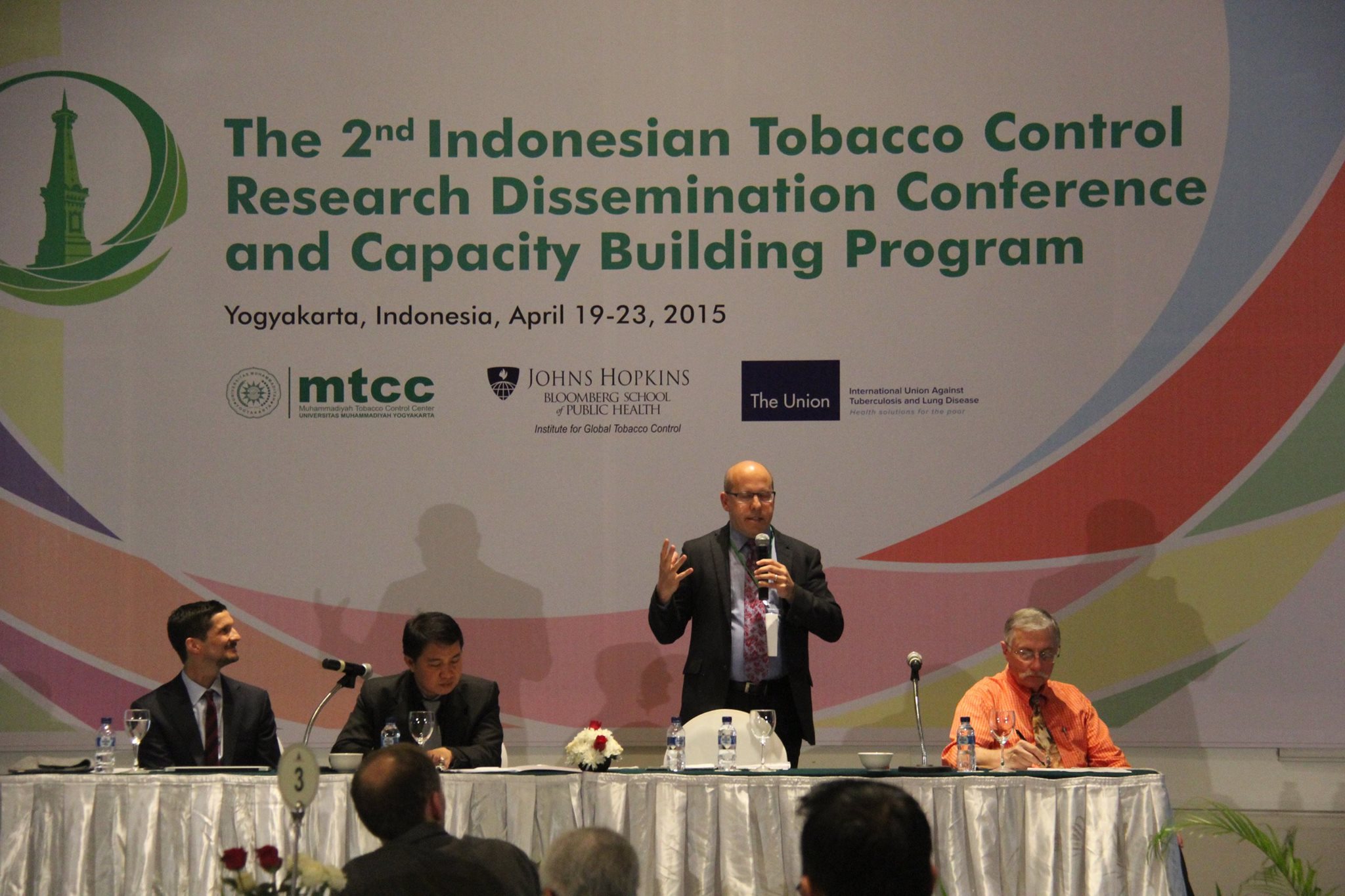Indonesia government is considered lack of concern on issues and impacts of cigarette. The government tends to focus on economic issues and labors of tobacco control rather than concentrate on health factors caused by high cigarette consumption in Indonesia.
The aforementioned paragraph was uttered by Prof. dr. HasbullahThabrany, MPH, DrPh, Chief of Economic and Health Policy Investigation Center of Universitas Indonesia (PKEKK UI), as a keynote speaker of International Conference “Promoting Tobacco through Policy-Relevant Research. It was organized on Monday (20/4) and by Muhammadiyah Tobacco Control (MTCC) of UniversitasMuhammadiyah Yogyakarta (UMY) cooperating with Johs Hopkins Bloomberg School of Public Health (JHSPH) and National Cancer Institute of the United States National Institute of Health (NCI/NIH). It was conducted for five days, from Sunday (19/4) to Thursday (23/4) in Hyatt Regency Hotel, Yogyakarta.
Prof. dr. HasbullahTabrany conveyed that government is now more worried that recruitment of labors would decrease if there is tobacco production control. In fact, he contended that labor recruitment is not only the matter of producing tobacco to be cigarette. “Government has thought that tobacco farmers would suffer financial loss if cigarette productions do not exist. There are other solutions for this issue. For instance, excise tax of cigarette could be given 10 percent to government and five percent to tobacco farmers to enhance their other skills besides producing tobacco to be cigarette,” he elucidated.
Moreover, Prof. Hasbullah recommended that government pay more concern on health factors due to cigarette. For one reason, it is still low Indonesian people’s awareness of cigarette impacts, particularly from middle to low economic level. Cigarette price in Indonesia could be stated adequate cheap, while the cigarette price in Malaysia and Singapore is quite expensive. In Indonesia, there are 260-billion cigarettes are consumed every year. Additionally, the surprising fact is that the greatest consumers are people in productive age. It is supposed to be the focus of government,” he asserted.
Furthermore, Jeffrey Drope, a representative of American Cancer Society (ACS), became a speaker of the seminar and talks about issues of tobacco control from economic aspect confronted by other countries. For example, ACS’ research in Malawi revealed that Malaei’s economy relies on agriculture of tobacco sector. “50-70 percent of overseas trade of Malawi is from tobacco. Thus, it is necessary more explanation and understanding of tobacco control from economic factor,” told Jeffrey.
Besides, Prof. dr. Tjanra Yoga Adiatama from Research and Development Center of Health Ministry of Republic of Indonesia, mentioned that government through Ministry of Health has attempted to control tobacco. “For instance, Free Smoking Area (KTR) has been implemented in various public facilities. The other preventive effort is through counseling to create motivation so that people could stop smoking. This counseling is undertaken in local government clinics, so-called KBM (Counseling of Stopping Smoking) program,” he said.
In addition, NanikPrasetyoningsih, S.H., M.H., Chief of Committee, stated that this event was an effort of academicians and observers of cigarette impacts to cope with tobacco consumption control, especially in Indonesia. “Additionally, we discuss not only the impacts of tobacco or cigarette for health, but also researches on the impacts of tobacco in social economic aspect. Therefore, we organized this international seminar,” she inserted.








